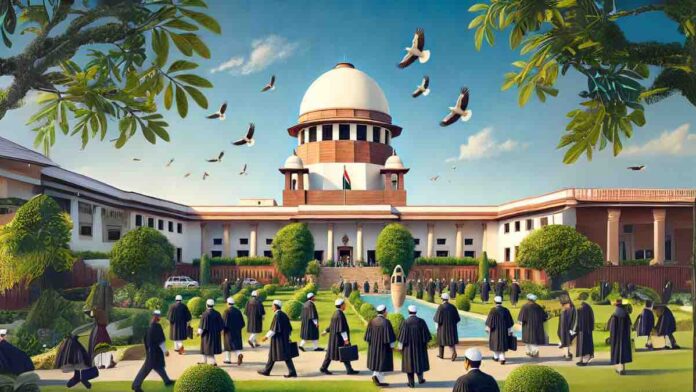The Supreme Court of India has upheld the Andhra Pradesh High Court’s judgment holding that a gift deed, once validly executed, cannot be cancelled unilaterally unless a right of revocation is expressly reserved under Section 126 of the Transfer of Property Act, 1882. The Court dismissed a civil appeal filed against the High Court’s decision,
To Read More Please Subscribe to VIP Membership for Unlimited Access to All the Articles, Download Available Copies of Judgments/Order, Acess to Central/State Bare Acts, Advertisement Free Content, Access to More than 4000 Legal Drafts( Readymade Editable Formats of Suits, Petitions, Writs, Legal Notices, Divorce Petitions, 138 Notices, Bail Applications etc.) in Hindi and English.




